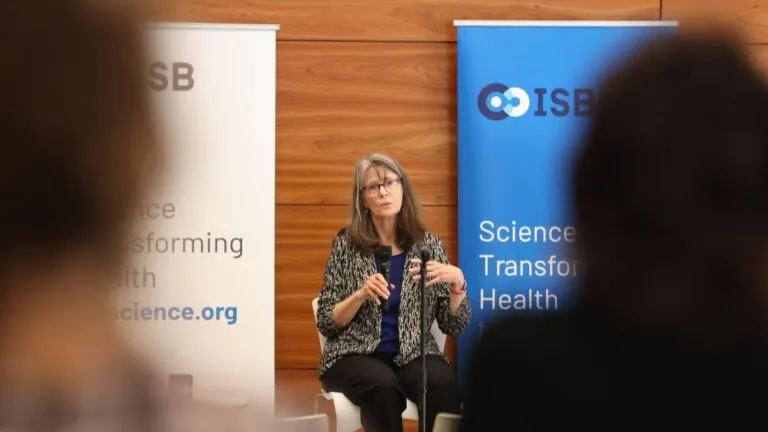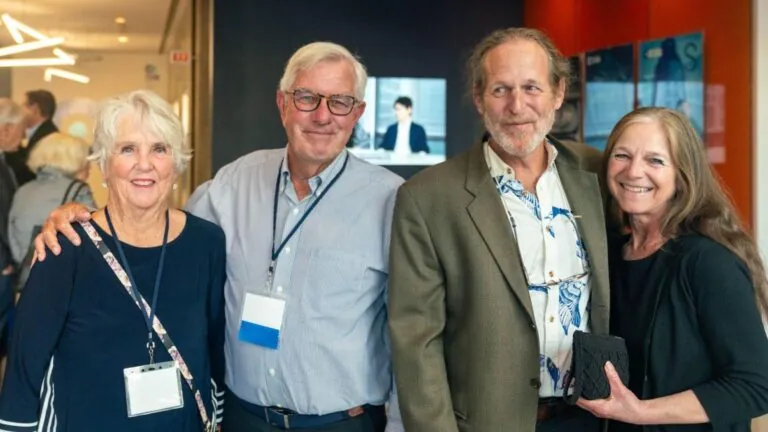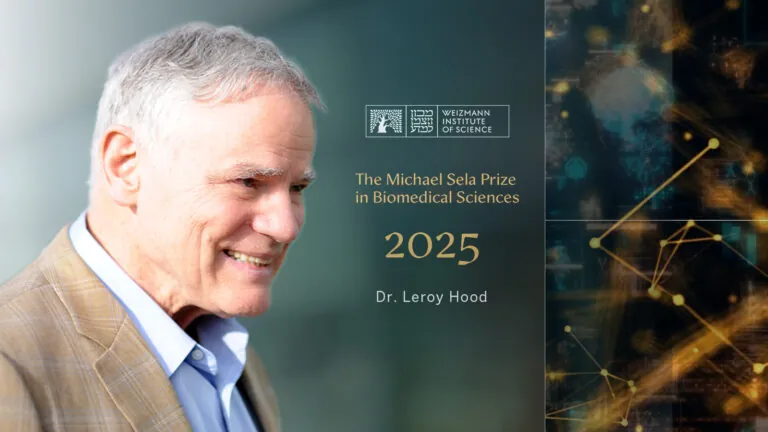Spotlight On Amy Zamora, Former ISB Systems Research Scholar
Between 2018 and 2020, Amy Zamora’s tenure as a systems research scholar allowed her to merge her two interests – math and biology – and to learn a lot more along the way. “I didn’t really know how to combine my passions until I came to ISB,” she said.
Amy Zamora loves math – so much so that she majored in it. She loves biology, too. Having disparate passions can be discouraging for aspiring researchers, who are sometimes urged to choose a path. Fortunately, Zamora was selected for ISB’s Systems Research Scholars Program (SRSP), which was created to help smart, driven undergraduate students just like her.
Between 2018 and 2020, Zamora’s tenure as a systems research scholar allowed her to merge her two interests, and to learn a lot more along the way. “I didn’t really know how to combine my passions until I came to ISB,” she said.
SRSP is a two-year, fully funded program that provides mentorship and immersion in ISB’s scientific research. “The program is designed to help transform exceptionally talented and ambitious undergraduates into the next generation’s pioneers of interdisciplinary scientific research,” said Dr. Nitin Baliga, ISB professor, director and senior vice president, who created the program.
Zamora was an “exceptional candidate,” Baliga said. “We believed that she was exactly the right type of person who would benefit from hands-on cross-disciplinary training in systems biology,” he said. “Conversely, we need quantitative thinkers like Amy to participate in solving complex problems in biology.”
Zamora says her ISB experience was unique. “Not many bachelor’s students are able to perform such independent research on their own, which I am very grateful for,” she said. “I think it really helped propel me for the rest of my career.”
Understanding Antibiotic Resistance
Within the Baliga Lab, Zamora worked to find new ways to tackle antibiotic resistance, specifically with regard to tuberculosis. Instead of creating a new drug, she worked with the lab to optimize and understand the mechanics behind how resistance develops.
By using a method called selective evolution, she was able to select specific environments where resistance could develop using lower concentrations of antibiotic drugs until the exact moment bacteria developed drug resistance. “This was done in a cyclic manner, so we could have a giant timeline of what was happening as resistance developed in the bacteria,” she said.
Now a graduate student at Harvard, Zamora credits the program and her experiences at ISB for helping guide the path she’s on.
“I applied for a lot of programs that were similar in terms of doing systems biology research. Currently I am a second year grad student at Harvard getting my PhD as a part of the Systems Synthetic and Quantitative Biology Program,” she said. Zamora is also leading her department’s diversity, equity and inclusion committee. “I’m working on ways in which we can talk more about diversity in science at Harvard, as well as individually in my program.”
“Amy exceeded all of our expectations, and her acceptance to all of the top graduate school programs across the country is evidence for how we foresee her career trajectory,” Baliga said.
‘You Can Never Really Progress If You Don’t Push Yourself’
ISB offers a variety of training programs – the Systems Research Scholars Program, the Translational Research Program, high school and undergraduate internships, and more.
Zamora encourages young researchers coming into these programs to challenge themselves, and to embrace uncomfortable situations. “You don’t really learn from sticking inside your comfort zone,” she said. “You can never really progress if you don’t push yourself in some aspect of your research or even in life. I think ISB not only helped me do that, but it helps everybody do that.”
Zamora recently sat down and talked about her experience with ISB’s Systems Research Scholars Program. You can watch her interview in full here or by clicking play on the video above, or you can see shorter excerpts from her interview below.


